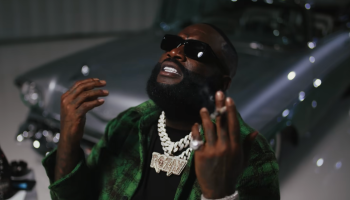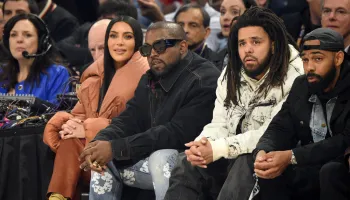Wale’s Rolling Out Cover
As Wale prepares for the release of his Ambition album Tuesday (11-1-11), the rapper is covering the latest issue of Rolling Out.
The Maybach Music emcee recently sat down with the publication to speak on a number of topics including his expectations for his sophomore project and the scandal that followed the release of his “Pretty Girls” video.
Last year the D.C. lyricist was the subject of criticism after the visual for the track featured mainly light skinned women.
According to Wale however, that was never his intention.
Rolling Out: You caught flack from black women for not having dark-skinned females in your “Pretty Girls” video. How did that make you feel?
Wale: It wasn’t about that, but it showed me what I meant to the black culture. That made me realize that people hold me at a higher regard. That was when I knew I had to make a change. For “Pretty Girls,” I didn’t go on set until there were dark-skinned girls at the video shoot. I was waiting. The most horrible feeling in the world, was that my women think that I don’t care about them. I’d rather go broke than for my black women to think that I don’t care about them. I would rather lose everything than to have my queens think I’m turning my back on them. I was the only kid in my neighborhood with a father. And that’s because I’m African and they don’t divorce. It messed me up. When I was in Mississippi, a girl told me she had her first child at 16. So I made a song called “Illest B—- Alive.” There’s a special place in my heart for black girls. If you’re black and have a black mother, you know how special they are.”
He also made sure to touch on his new home at MMG that allows him to have more “freedom” than his previous ties to Interscope.
“The difference is freedom. I’m very in tune with urban culture. I felt my last situation wasn’t allowing me to grow w
ith the urban culture. They saw a Lady Gaga opportunity and I went with it. I was a new artist and I didn’t get it. I thought I was being ignored by black America. It’s not as much money, but to connect with the people I grew up with is more important than connecting with pop fans. Even the white people who are familiar with my music deserve to hear what I’m really saying. I shouldn’t be marketed toward top 40. When I listen to my first album, you can hear who I am talking to. But I now have an opportunity to change that.”
For more of Wale’s Rolling Out interview click here.
Check out some pictures from his cover shoot below.















